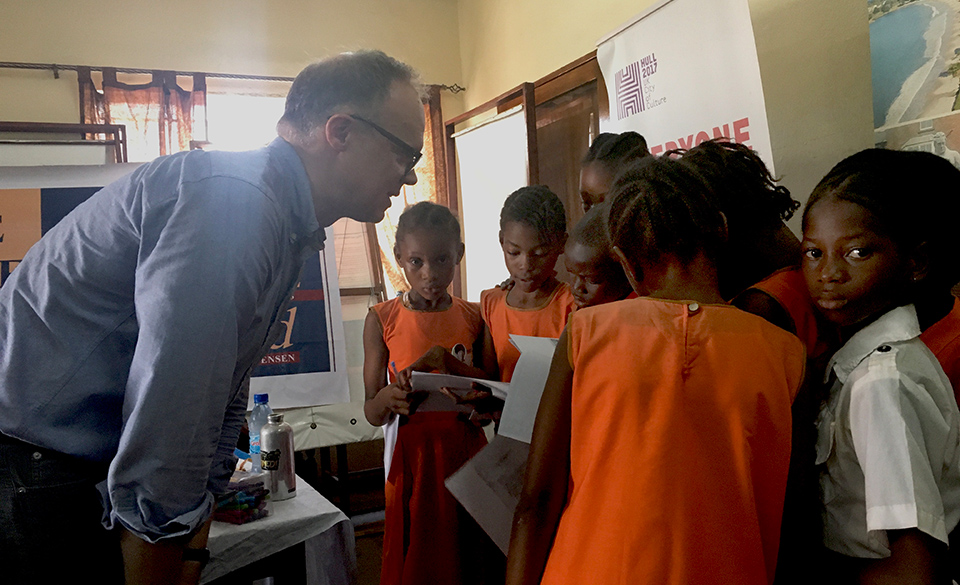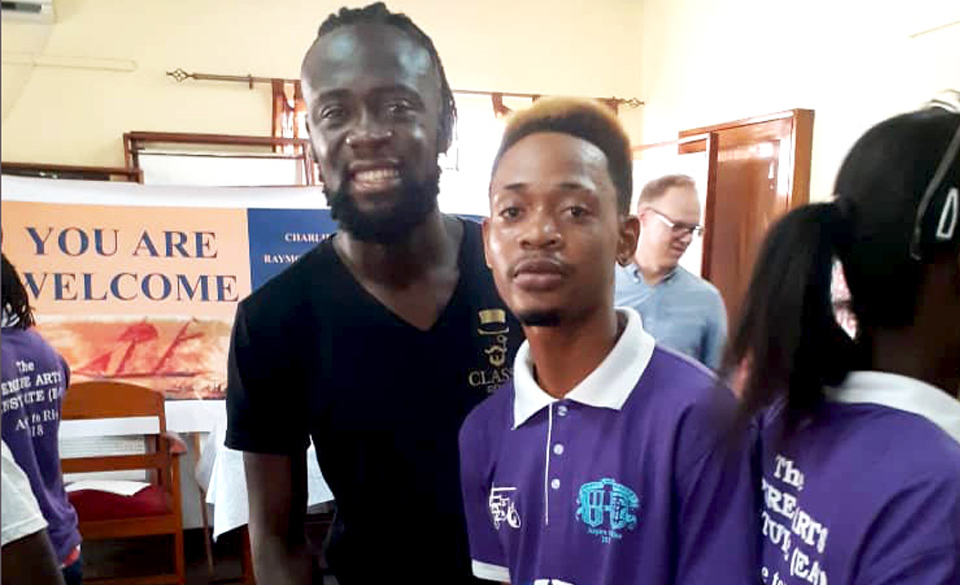By News and Internal Communications
RIO GRANDE VALLEY, TEXAS – Dr. Matthew Christensen, a professor of English in UTRGV’s Department of Literatures and Cultural Studies, spent the final week of November in Freetown, Sierra Leone, where he delivered the keynote address at Amistad Week.
Christensen, at the invitation of Sierra Leone’s Ministry of Tourism and Cultural Affairs, also gave a series of talks and a workshop in conjunction with the publication of his newest book, Staging the Amistad: Three Sierra Leonean Plays.
Published in 2019 by Ohio University Press, the book is a drama anthology that is part of the Modern African Writing series, and includes scripts about the historical events of the 1839 Amistad slave revolt, written by three of Sierra Leone’s most prominent playwrights of the late 20th century. Christensen edited the play anthology and wrote its scholarly introduction.
The Amistad slave revolt was carried out aboard the Amistad slave schooner by 53 Sierra Leoneans and has become an important event in Sierra Leonean national history.
Amistad Week events in Sierra Leone opened Nov. 26 with a formal book launch and Christensen’s keynote address, which focused on the cultural significance of public history, creative literature and civic engagement.
The launch included speakers from the University of Sierra Leone, the Principals’ Association of Freetown, the Ministry’s Cultural Affairs section, Tabule Theatre Company, and the Empire Arts Institute, and drew an audience of about 100 professionals, scholars, university students and school children.
Christensen followed up his keynote the following day as one of six featured speakers at a symposium on the historical and cultural legacies of the Amistad slave rebellion in contemporary Sierra Leone.
He took center stage again Nov. 28 to lead a workshop at the Sierra Leone National Museum on using the arts to teach history, teaching the 30 teachers, university students, visual artists and creative writers attending how to develop a skit, song, story, or graphic text about the Amistad history for school children.
During the workshop, former Houston Dynamo soccer player and current Sierra Leone National Football team forward Kei Kamara stopped by to introduce himself to one of the playwrights featured in Christensen’s book.
Christensen’s travel was funded in part by the UTRGV Office of Global Engagement.
ABOUT UTRGV
The University of Texas Rio Grande Valley (UTRGV) was created by the Texas Legislature in 2013 as the first major public university of the 21st century in Texas. This transformative initiative provided the opportunity to expand educational opportunities in the Rio Grande Valley, including a new School of Medicine and a School of Podiatry, and made it possible for residents of the region to benefit from the Permanent University Fund – a public endowment contributing support to the University of Texas System and other institutions.
UTRGV has campuses and off-campus research and teaching sites throughout the Rio Grande Valley including Brownsville (formerly The University of Texas at Brownsville campus), Edinburg (formerly The University of Texas-Pan American campus), Harlingen, Weslaco, McAllen, Port Isabel, Rio Grande City and South Padre Island. UTRGV, a comprehensive academic institution, enrolled its first class in the fall of 2015; the School of Medicine welcomed its first class in the summer of 2016, and the School of Podiatric Medicine in the fall of 2022.



